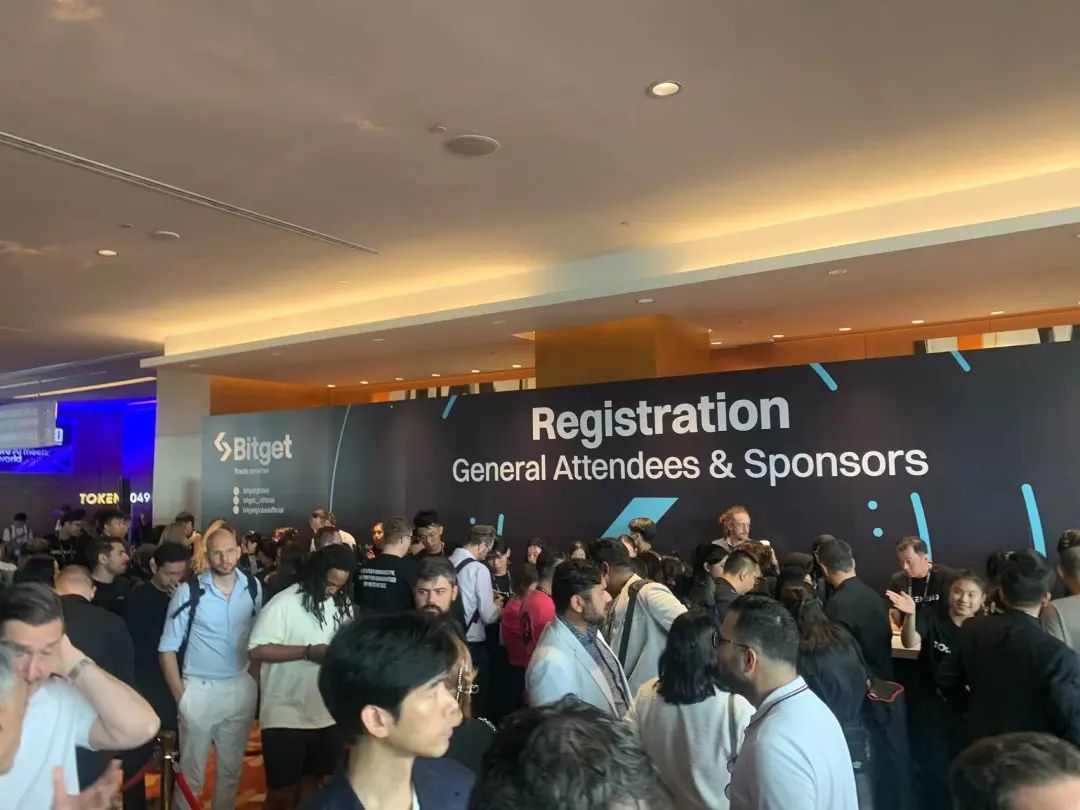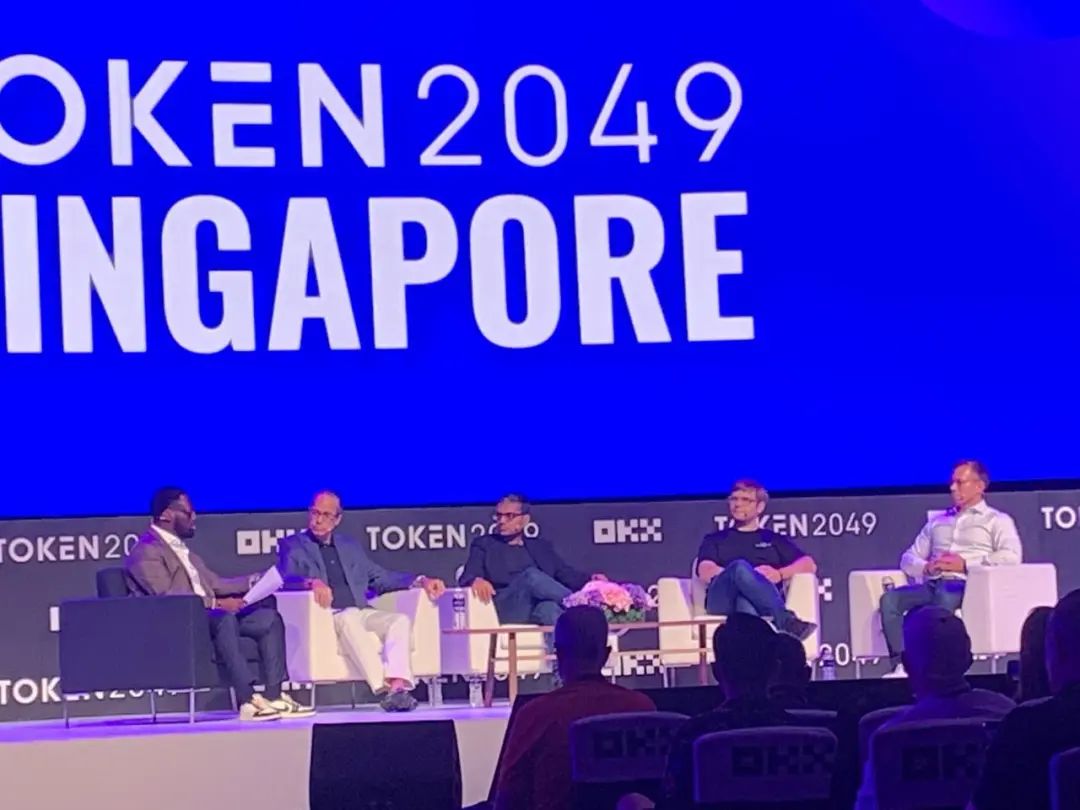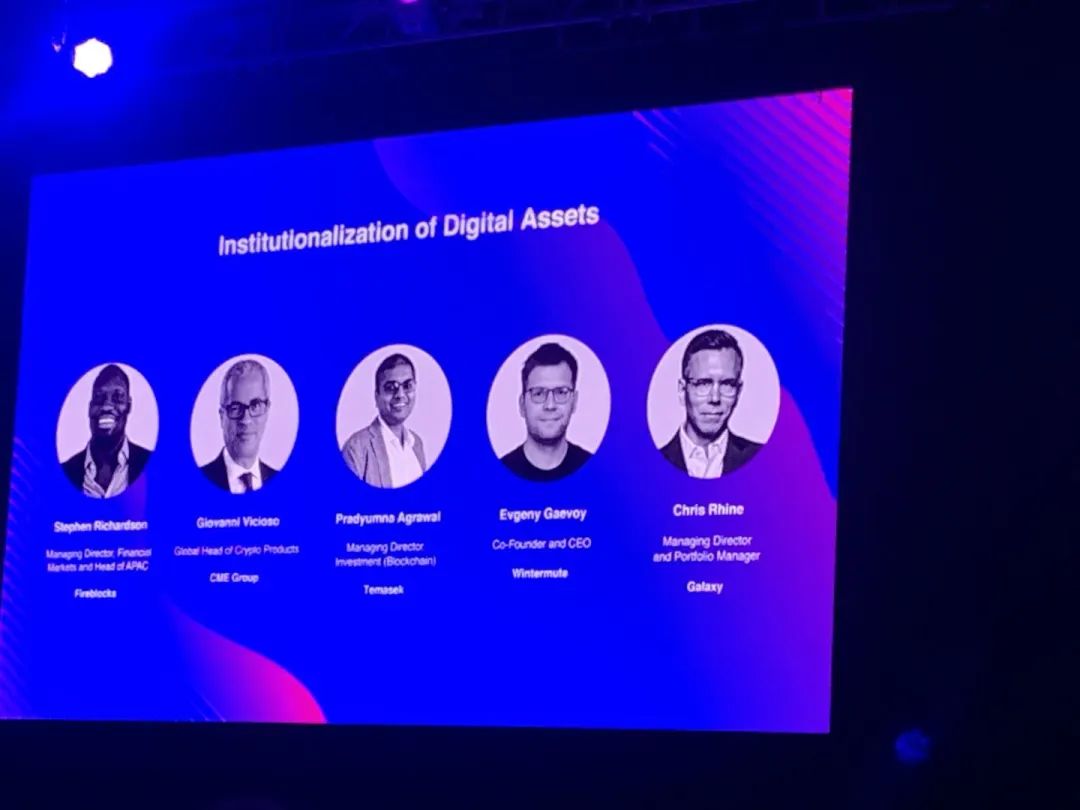Token2049 Review Lack of Innovation in Projects, Institutional Focus on Regulation
Token2049 Review Lack of Innovation in Projects, Institutional Focus on RegulationAuthor|MatthewLee
On September 11th, just after arriving in Singapore, I received a question from a journalist friend, “The market suddenly dropped 4%, what is your view on this?” I was taken aback, but still replied to my friend in a professional yet vague manner, “The market decline is related to the shortage of market liquidity, and the concerns about FTX’s liquidation have added fuel to the market downturn. However, based on the current economic data and future catalysts (such as Ethereum upgrade and Bitcoin halving), I personally have confidence in the medium-term market.”
After replying to my friend, I immediately opened my OKX account and looked at the glowing red numbers, silently buying a bottle of liquor at the duty-free shop at the airport.
The market is bleak, but it doesn’t dampen the enthusiasm of the participants
September 13th was the first day of Token 2049. I deliberately got up early, but when I arrived at the venue, it was already crowded. The conference venue was on the fourth and fifth floors, but the queue for collecting name tags had already reached the third floor. After entering the main venue, there were at least 30 exhibition booths in the larger venues, including well-known projects such as OKX, Avalanche, CertiK, Fireblock, OKLink, Bloomberg, etc. The participants couldn’t hide their excitement and were introducing themselves and their companies to unfamiliar project parties and attendees in the crowded aisles, unaffected by the market fluctuations.
- Topping the list with a 15.4% airdrop ratio, taking stock of 19 potential projects invested by Binance Labs that have not yet issued their own tokens.
- Robinhood Bot Comprehensive and Fast New Trading Robot
- Bear market forces on-chain innovation. Are these newly popular projects worth paying attention to?

Industry giants gather at the venue
Prior to the conference, I had done a lot of preparation, mainly to meet some friends, visit industry veterans, and hope to gain some new market insights from industry veteran conference sessions.
I think the most interesting topics of the three main conference sessions are: Navigating Blockchain and Web3 Data; Crypto Exchange: Challenges and Opportunities Ahead; Institutionalization of Digital Assets; Banking with Crypto: Insight from The Bankers.
Because the main invited guests of these conferences are mainly executives or founders of major institutions, such as Standard Chartered Bank, DBS Bank, Temasek, OKX, Chainalysis, etc., the main topics are future trends in virtual currency development and market compliance trends. I can briefly summarize the content of these conferences featuring industry giants as the main speakers and clarify the main discussion points of the conferences.

The Navigating Blockchain and Web3 Data session mainly revolves around the development of the virtual market, on-chain data, and the current market hot topic – artificial intelligence. The moderator asked a very interesting question: SEC is currently using AI for compliance, what are your views on this (invited guests)?
The response from Chainalysis founder Michael Gronager is very accurate.
“This is a very interesting experiment because now on-chain data service providers can explore the similarity of transactions through the transaction characteristics on the blockchain, and then use massive amounts of blockchain data for machine learning to more accurately identify the characteristics of each transaction.”
This is similar to the label services provided by many on-chain data service providers (which is also the focus of the Ouke Cloud Chain).
The founder of Glassnote is also very excited about the combination of artificial intelligence and web3 on-chain data because massive on-chain data can provide AI, and AI can also more easily help project parties with data management. The rest of the founders have also expressed some views on AI: AI can do things that ordinary people cannot do, such as analyzing massive data behaviors and then labeling addresses.

The topic of “Banking with Crypto: Insight from The Bankers” highlights the layout of major banks in the field of cryptocurrency. However, due to the high volatility of the market and the bankruptcy of FTX, even cautious institutions are only in the trial stage. But what is clear to them is “don’t challenge the regulation,” even though the current regulatory framework is unclear, if institutions engage in “mixed operations” or treat money laundering with a perfunctory attitude in the virtual field, they will be closely monitored by regulators in the future when operating virtual asset businesses.

The topic of “Institutionalization of Digital Assets” mentioned that many institutions are providing cryptocurrency services for their clients, but they have not invested their assets in the market. Although many institutions are still interested in the market, the high volatility and low liquidity of the market prevent institutions from entering the market. The MD of Temasek also mentioned that in this industry, the participation of institutions is very important, but some irregularities in the industry may cause institutions and retail investors to suffer losses, and these irregularities need regulatory guidance.
Especially after experiencing strict regulation in the first half of the year, many institutions are watching the virtual asset market, one is to observe the trends in the medium term, and the other is whether the regulatory attitude will undergo significant changes.
Impressions of the conference:
Lack of innovation in projects, institutions focusing on regulation
I also attended some Side Events, most of which were attended by project team members, and most of the domestic project teams were focused on Infra, with more emphasis on ZK technology or wallets. Foreign projects are more diverse, but there is not much innovation either.
Compared to the conference in Hong Kong this year, the project teams at the Hong Kong booth were mainly focused on DeFi to solve capital efficiency, while the conference in Singapore was more focused on infrastructure, with higher technical barriers and market scale, but still not much innovation. There were more investment institutions in Hong Kong, and at the time, I received many gold-bordered business cards with the names of founders of certain capital firms. In Singapore, the number of investment institutions attending the conference was much fewer, and even the attending investors complained to me that, in the current market, projects are still expensive.
When communicating with the partners of Capital 6 Eagle, he also expressed his views on the many ZK projects in the field: “We support the development of ZK, but many of the application scenarios for ZK are overestimated. In many scenarios, ZK technology is not the optimal solution. Overestimated application scenarios have led to the overvaluation of most ZK projects, so we will not invest in projects where the current application scenarios do not match the valuation.”
In contrast to the project parties, the main positions or topics of the main venue are mostly unrelated to ZK, RWA, etc. The topics of institutions mainly focus on security or compliance infrastructure, such as on-chain data, AI combined with compliance, etc. Due to the continuous regulatory actions by various countries in the first half of this year, regulations proposed in places like Hong Kong and Singapore have clear requirements for on-chain data regulation (to prevent money laundering), and the US SEC’s prosecution of various virtual activities has made some institutions pay more attention to compliance.
Final Thoughts
It has to be admitted that the current focus of institutions is not on wallets, payments, or even RWA, but more on compliance and regulation. This is related to macro market trends and also to their main business. Many conference participants mistakenly believe that the series of actions by institutions in the virtual market indicate that they want to invest in virtual currencies, but in reality, the vast majority of institutions are only catering to market effects and making business innovations for their clients, but fundamentally, they are just providing “shovel-selling services” and won’t personally participate. When institutions provide shovel-selling services, a lot of compliance work is required, which is why the narrative focus of the main venue is slowly shifting towards custody, licenses, on-chain anti-money laundering, and other directions.
For ordinary project parties, although the attendees are very excited, there are not many innovations in terms of projects, and there is a strong tendency towards convergence. The main development directions are wallets, ZK, and RWA. When choosing these directions, project parties are not thinking about going far, but going fast. When everyone cleverly thinks they will be the pig on the crest, in the end, they may not be able to fly because there are too many pigs on the crest.
The reason why there is a lack of industry innovation is that everyone is not building the industry with a long-term perspective. Many innovative projects from the previous cycle are no longer seen now, but it is not because the technology or business models are not viable, but because they cannot make money in the short term, and both the capital side and the market do not buy it. However, how can projects that have not been built for a long time possibly lead the development of the entire industry? Therefore, the narratives in the market are still guided by EIP upgrades and the halving of Bitcoin production.

We will continue to update Blocking; if you have any questions or suggestions, please contact us!
Was this article helpful?
93 out of 132 found this helpful
Related articles
- ABCDE Why Should We Invest in GRVT (Gravity)
- Interpreting the Future Path and Star Projects of LayerZero’s Cross-chain Innovation
- Analysis of 10 Tips for Web3 Entrepreneurship The period of bonanza for bottom-up project development has passed, and marketing is becoming more important.
- Overview of the first six investment projects of the Base Ecosystem Fund
- One out of a hundred, taking stock of the first batch of investment projects by the Base Ecology Fund.
- Nima Capital sells tokens and sells luxury homes, previously invested in these 16 projects.
- With 8 years of experience and managing over 540 million dollars, how does CoinFund, a cryptocurrency fund, choose its track and invest in projects?






